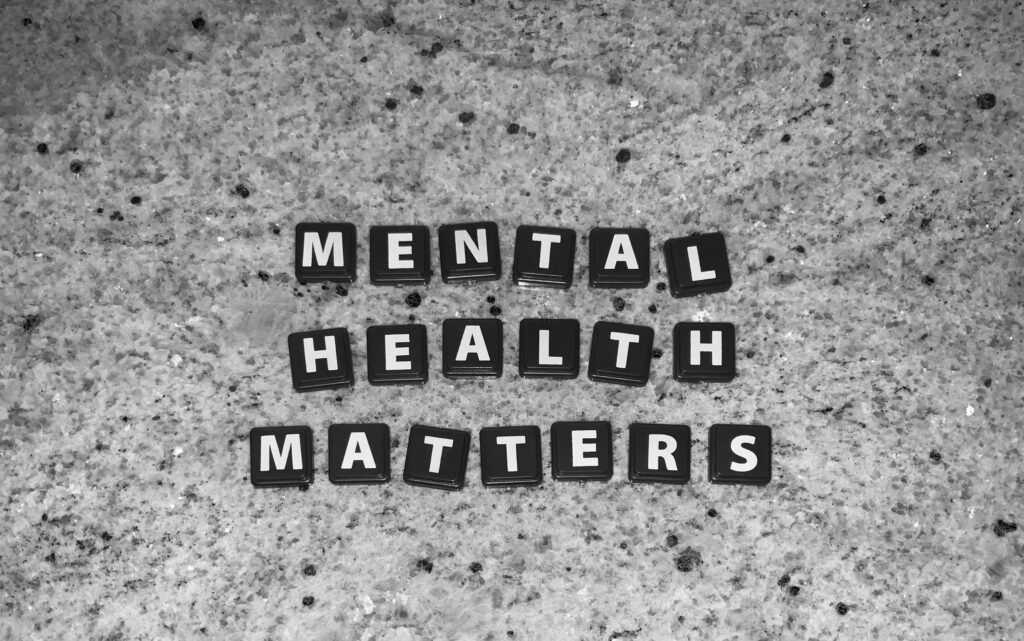Mental health issues are on the rise, with more and more people struggling to cope with emotional and mental challenges. While there is no one-size-fits-all solution for every individual’s unique circumstances, it is important to understand the different types of mental illness so that proper treatment can be sought. Here are six common types of emotional and mental problems faced by individuals today:Â
1. Anxiety
Anxiety is a feeling of intense fear or worry that can lead to physical symptoms such as a racing heart, difficulty breathing, and restlessness. People who experience anxiety may feel overwhelmed, panicked, or constantly on edge. Anxiety manifests differently in each individual, but some common signs include an inability to concentrate, negative self-talk, insomnia, and avoidance of activities and situations that cause distress. For example, if you are from Denver, you can research Denver anxiety therapy and find the solution that is most convenient for you. It is important to seek treatment for anxiety, as it can lead to more serious mental health issues if left untreated.Â
2. Depression
Depression is a mental health issue that affects millions of people and can have serious consequences on their quality of life. Symptoms of depression include feelings of sadness or emptiness, difficulty concentrating, fatigue, appetite changes, and thoughts of suicide. While the exact cause of depression remains unknown, it may be linked to certain biological factors such as genetics or hormones. Treatment for depression typically includes therapy, medication, and lifestyle changes.Â
3. Bipolar Disorder
Bipolar disorder is a mental health condition characterized by extreme shifts in mood. People with bipolar disorder experience periods of intense mania or hypomania followed by episodes of deep depression. Bipolar disorder is often preceded by early warning signs such as increased energy levels and decreased need for sleep. Treatment involves a combination of medication, psychotherapy, and lifestyle changes.Â
4. Obsessive-Compulsive Disorder (OCD)
Obsessive-compulsive disorder is an anxiety disorder characterized by intrusive thoughts and compulsive behaviors. People with OCD typically experience uncontrollable thoughts related to certain objects or situations, as well as compulsions such as checking, cleaning, or counting that they feel compelled to do to alleviate their anxiety. Treatment involves a combination of cognitive-behavioral therapy and medications.Â
5. Post Traumatic Stress Disorder (PTSD)
Post-traumatic stress disorder is a mental health condition that can occur after a person has experienced or witnessed a traumatic event such as war, natural disasters, or physical abuse. Symptoms may include flashbacks, nightmares, severe anxiety, overwhelming fear, and avoidance of reminders of the event. Treatment includes cognitive-behavioral therapy, medications, and lifestyle changes.Â
6. Personality Disorders
Personality disorders are mental health conditions characterized by long-term maladaptive patterns in behavior, thinking, and emotion that can significantly interfere with the quality of life. Types of personality disorders include narcissistic personality disorder, borderline personality disorder, and antisocial personality disorder. Treatment typically involves psychotherapy and medications to help manage symptoms such as impulsivity or unstable relationships.Â
Why are mental problems more common these days?Â
As societies grow increasingly complex and technology becomes more intertwined with everyday life, mental health is becoming a larger issue. Mental health issues can arise due to a variety of factors such as genetics, environment, and lifestyle choices. Individuals must take steps to seek treatment if they are experiencing any kind of emotional or mental distress. It is never too late to seek help for emotional and mental problems. With the right treatment plan, individuals can learn positive coping skills and regain control over their lives. If you are struggling with any type of emotional or mental problem, talk to your doctor about options for treatment.
Is there anything we can do to prevent mental health issues?
While it is impossible to completely prevent mental health issues, some things can be done to reduce the risk. Prioritizing self-care, making time for relaxation and recreation, engaging in regular physical activity, eating a healthy diet, and avoiding substance abuse are all important steps toward maintaining good mental health. Additionally, seeking help from friends, family, or professionals if needed can support individuals in managing any difficulties they may face. Taking these proactive steps can help ensure that our mental health remains strong and stable.Â
Also, if you know someone who is struggling with a mental health issue, it’s important to be supportive and show understanding.Â
As we saw, there are several different types of emotional and mental problems people can experience today. It is important to be aware of the signs and symptoms associated with these conditions so that proper treatment can be sought. With the right support, individuals who suffer from mental health issues can learn to manage their symptoms and achieve an improved quality of life. So, if you or someone you know is struggling with emotional and mental issues, it’s important to seek help from qualified professionals as soon as possible. Good luck!























